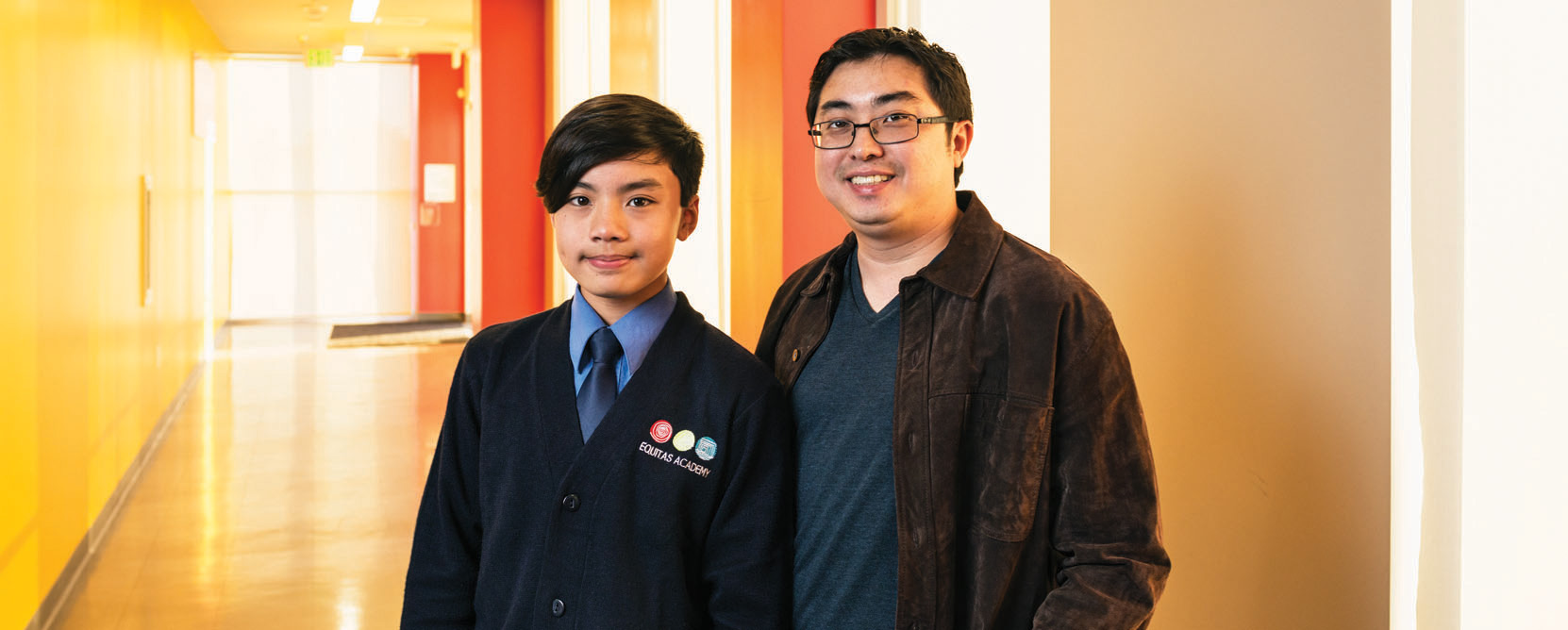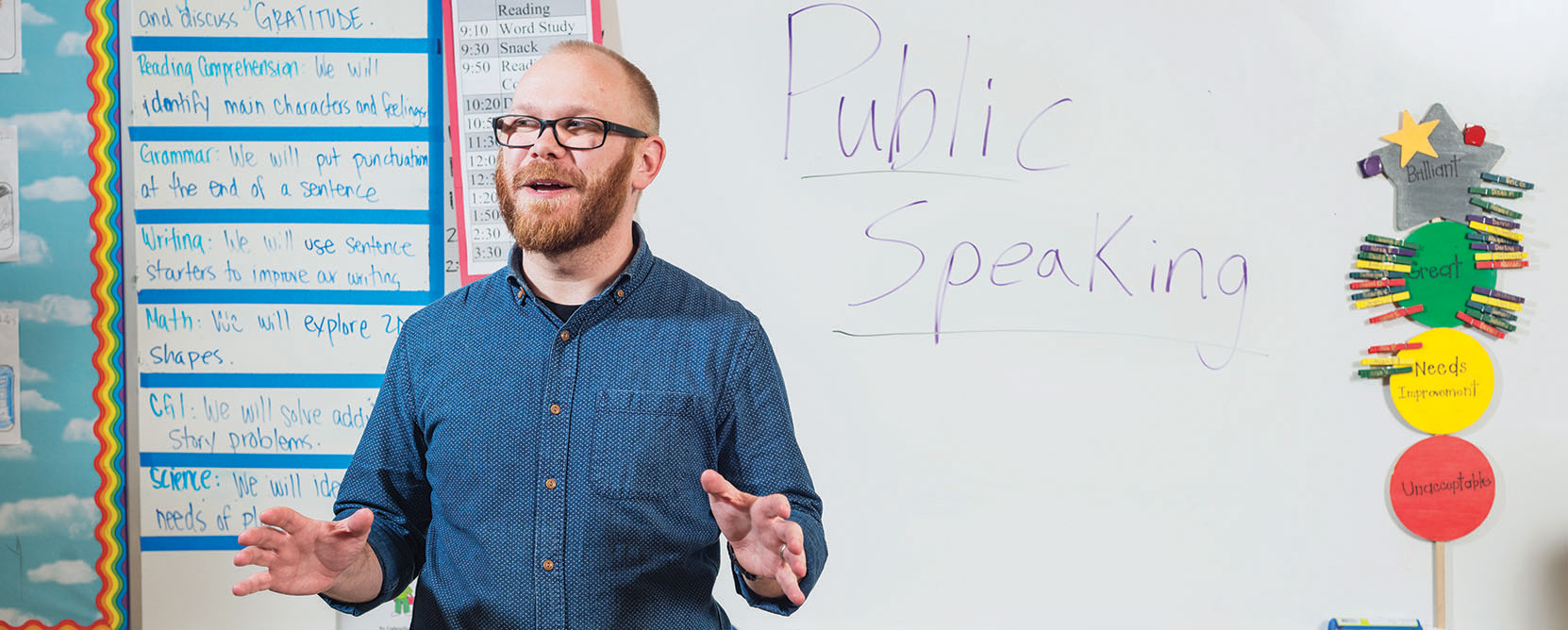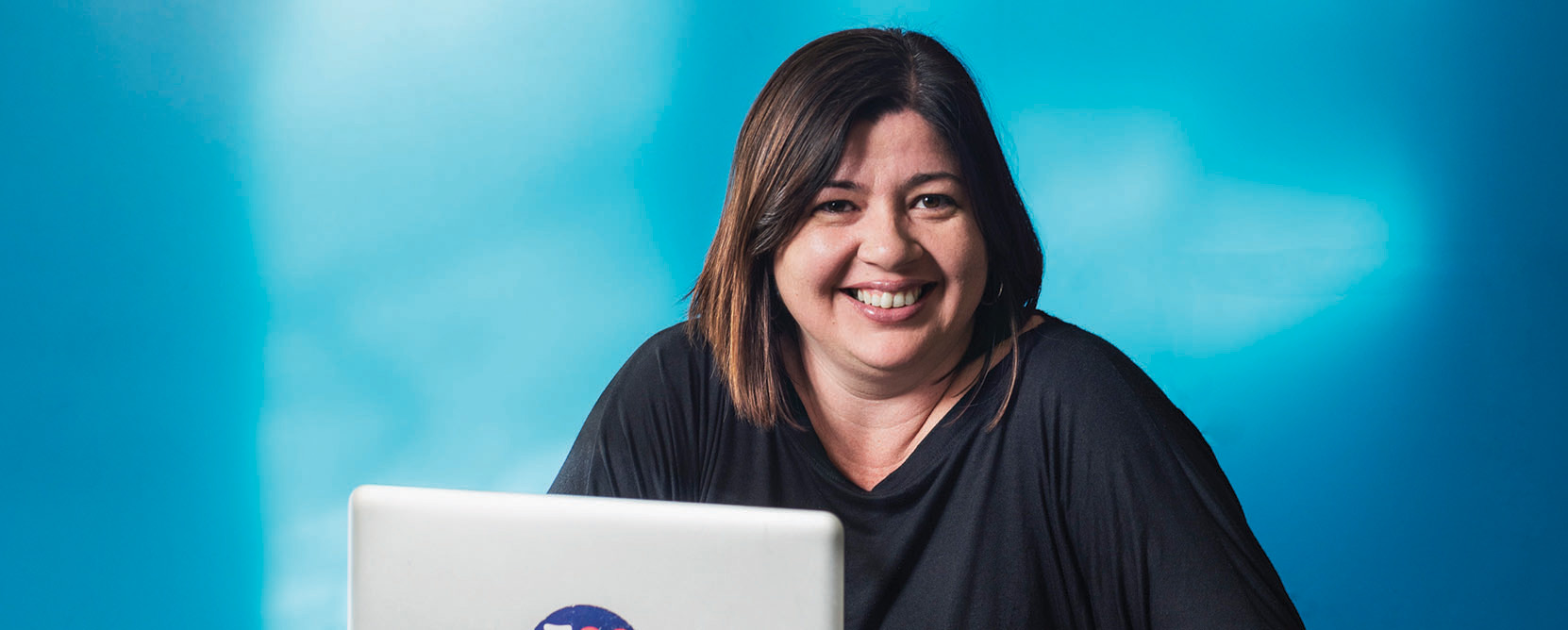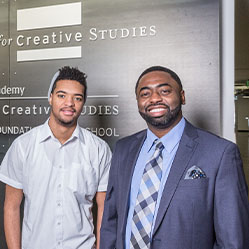
Yesenia Franco wants her three daughters to attain what she did not—a college degree.
“I had the opportunity, and I threw it away,” she says.
Last year, one of Franco’s daughters came back from a visit to UC Berkeley and Stanford. She was certain of where she wanted to attend college, and Franco was elated. She also couldn’t help but laugh.
It was not because she did not believe in her daughter. It was the fact that she had not even graduated from elementary school!
Visiting college campuses is par for the course at Equitas Academy, a charter school for kindergarten through eighth grade with two locations in the Pico-Union neighborhood of central Los Angeles.

Executive Director’s Malka Borrego, mission for her students is clear: “There are so many boulders that could keep them from college…so why not just take it off the table? We’re not negotiating if you’re going to college, it’s which college you’re going to.”
While standard now, this type of program was just a vision of the school’s founder, Malka Borrego, only a few years ago. Having grown up in the neighborhood, she knows first hand the challenges these kids face on a daily basis.
Her community is both deeply impoverished and extremely dense. Roughly one-third of the residents of the surrounding Pico-Union neighborhood live below the poverty line. Elementary schools in the area are often overcrowded and in need of improvement, making it difficult for teachers to provide a quality education. Many of the children are new English speakers.
So in 2009—with financial support from Capital Impact Partners—Borrego opened the doors to her school. But securing students was far from a sure bet. Initially, Borrego was forced to recruit students who were waitlisted at other charter schools.
Borrego sought to build awareness of Equitas by fostering a warm learning environment for her students. She is often found out front every morning greeting students. Tuition is free for the student body—97% are Hispanic and 92% qualify for free or reduced-price lunch.
“We have declared that we’re part of this community, and the community has embraced us” Malka Borrego Equitas Academy Executive Director
But she also institutes a sense of order and discipline. There is a dress code. A “boot camp” kicks off the start of the year when students learn about the expectations their teachers have of them.
Parents are not immune either. Although many students’ families travel to Mexico during the year, she stresses the importance of attendance and parental involvement—insisting that parent-teacher conferences take place. This may mean conducting ad hoc meetings when parents pick up their children to make sure they understand the progress of their children’s education.
That might sound like a recipe for rebellion, but Yesenia Franco says her daughters—now in sixth, fourth and second grades—do not think so. Every morning, they happily make the 45-minute commute from Inglewood to get to Equitas Academy on time.
“For them to be like, ‘Mom, it’s time to go to school!’…It’s like, wow. They’re the ones knocking on my door in the morning,” Franco says.
Borrego’s dedication to her students has clearly paid off.

At the heart of Equitas is its teachers, a committed and diverse group whose primary goal is to get all students excited about achieving their potential.
“We have declared that we’re part of this community, and the community has embraced us,” Borrego says. “It’s all word of mouth. We have thousands of kids on our waitlist.”
Indeed, the challenge was no longer about filling seats—it was about creating them. By 2011, Borrego realized that her future expansion plans required building a new facility. Given California’s slow economic recovery, many California charter schools struggled to find the necessary financing to realize their facility goals.
So Borrego once again turned to Capital Impact.
“We were thrilled to have the opportunity to work with Malka again to finance Equitas Academy’s second facility. It’s inspiring to watch Equitas grow from a single school to a successful emerging network in L.A. Capital Impact is a mission-driven lender, and it means so much to know that we have helped to facilitate that growth,” said Senior Loan Officer Emilie Linick. “Malka’s commitment and vision are infectious, and she knows how to deliver on the promise of changing the trajectory of students’ lives.”
Equitas Academy received a $3.7 million loan from Capital Impact as part of New Markets Tax Credits transaction —a vital program through the U.S. Treasury’s Community Development Financial Institutions Fund that brings much needed capital from the private sector to finance projects in low-income communities.
Then, Equitas was able to convert an existing one-story, 25,000 square foot warehouse into 18 new classrooms, a multi-purpose / lunch area, a teachers’ lounge and administrative offices. This expansion has ultimately allowed Equitas to educate a total of 800 kids from kindergarten through seventh grade.

After a rocky time at previous schools, Reionn Webber has been thrilled with the turnaround he has seen since his once timid son entered Equitas Academy.
Reionn Webber encapsulates that confidence in Borrego and the school’s future. His oldest son, currently in seventh grade, has been at Equitas since the beginning. After some rocky preschool and kindergarten experiences, Webber remembers being apprehensive about his son’s first day at the academy.
“My son is a very timid type of person, he doesn’t really express himself fully,” Webber says. “If he says, ‘It’s ok,’ that means it was wonderful. But at that time, he didn’t say it was ok, he said, ‘I like it, Dad.’ To me, that was like, whoa.”
At the heart of Equitas is its teachers, a committed and diverse group whose primary goal is to get all students excited about achieving their potential.
“If there’s anyone that’s behind, it’s our job to bring them up, and it’s something that we know we can do,” says Johanna Bentson, a fifth grade social studies teacher. “And really the main thing that I love seeing is the growth in their character, how they interact with each other, and interact with teachers. We’re pretty strong in our character education program.”

Equitas students benefit from classes that go beyond basic subjects. Case in point is Troy Kinney who teaches public speaking, debate, and speech writing, where he often channels channels Martin Luther King and Cesar Chavez to inspire his kids.
Students also benefit from classes that are about more than the basic subjects. Take public speaking, for example, and Kinney, who loves his work.
“My wife and I joke a lot — it’s like I created my own dream job,” Kinney says.
Kinney not only teaches public speaking but also covers debate and speech writing prep. He’s doing everything in his power to make the classes culturally relevant, showing speeches by Martin Luther King Jr. and explaining the impact leaders like Cesar E. Chavez had in affecting the status quo.
“There’s something about teaching kids that I think the system doesn’t always care about that really means a lot to me,” Kinney said. “And to be able to show my kids figures in history that look like them, that have the same skin color as them, who have a similar background as them, and to show all they’ve done, really reinforces the idea we have at Equitas that you can do anything.”

Through her infectious commitment and vision, Malka Borrego has gone from having to recruit students in 2009 to building an entirely new facility just a few years later to support local demand.
The walls of both Equitas Academy buildings are lined with college banners, and every classroom has a designated university that students will learn about, and, when possible, visit. The emphasis on higher education has resonated with parents like Franco and Webber along with teachers like Bentson and Kinney, who are convinced that Equitas Academy attendees are buying into their future success. And the catalyst for that belief — Borrego — is willing to take it one step further.
“There are so many boulders that could keep them from college,” Borrego said, “so why not just take them off the table? We’re not negotiating if you’re going to college, it’s which college you’re going to.”









